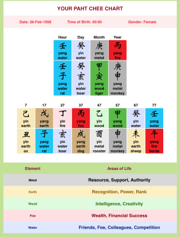
The digital age has transformed how we share our dining experiences, but sometimes a simple review can snowball into something much bigger.
A recent dispute between a Melbourne restaurant and a Wellington food blogger shows just how quickly things can escalate—and highlights important consumer rights that every Australian should understand.
A Father's Day breakfast gone wrong
The story begins on Father's Day, when Alice, a Wellington-based food influencer, visited Ondo, a Korean restaurant in Melbourne's CBD, expecting to enjoy breakfast with her family at 8am. While the restaurant doors were open, she discovered the kitchen wouldn't serve food until 9am—a practice she found unusual and frustrating.
Despite initially praising the meal and service in a social media post, Alice left a one-star Google review citing the confusion over opening times. What happened next reveals how not to handle negative feedback.
According to Alice, the restaurant began sending Instagram messages demanding she remove the review within two hours, with communications escalating to threats of legal action and warnings they would publish her personal information for 'public judgement.'
In this article
'The café then posted a public statement on Instagram while also blocking me (and others who defended me) from commenting'
When businesses cross the line
The Australian Competition and Consumer Commission (ACCC) is clear about what businesses can and cannot do regarding online reviews. Companies that pressure customers to remove negative reviews or offer incentives only for positive feedback risk breaching consumer law.
Restaurant owners Ryan Kim and Crush Yang defended their venue by sharing their version of events, claiming Alice had requested complimentary food in exchange for favourable reviews—an allegation she denied. They also insisted their opening hours were clearly displayed.
However, the approach taken by threatening legal action and personal information disclosure raises serious concerns about appropriate business conduct.
Your rights as a reviewer
What businesses cannot legally do
Offer incentives only for positive reviews
Remove genuine negative reviews to mislead consumers
Threaten customers over honest feedback
Fail to clearly display review policies
Australian consumers have strong protections when it comes to expressing honest opinions about businesses. Recent enforcement actions by regulators reinforce that staying informed about your rights is crucial, especially as authorities actively pursue non-compliant businesses.
If you've had a similar experience, you're not powerless. Your first step should always be contacting the business directly to explain the problem. If they don't resolve it appropriately, you can take the matter further.
The restaurant industry's opening time quirk
While Alice found it unusual for a restaurant to open its doors before the kitchen was ready, this practice isn't uncommon in the hospitality industry. Many venues open early to serve coffee, pastries, and light items while preparing hot food service for later.
The key issue here isn't the operating practice itself, but how clearly it's communicated to customers and how disputes are handled when misunderstandings occur.
Red flags in business responses to reviews
- Threats of legal action over honest feedback
- Demands to remove genuine reviews
- Threats to publish personal information
- Blocking customers from commenting on public responses
When to escalate a dispute
Alice took her concerns to Consumer Affairs Victoria and the ACCC, which was appropriate given the nature of the business's response. The ACCC accepts reports about misleading online review practices and uses them to inform education, compliance and enforcement work.
With increased funding for consumer protection enforcement, the ACCC is particularly focused on businesses misrepresenting consumer rights and misleading practices affecting everyday purchases.
What this means for diners
Example Scenario
- As a consumer, you have the right to share honest feedback about your dining experiences. Businesses cannot legally intimidate you into silence, even if your review affects their reputation. If you encounter threats or pressure tactics, document everything and consider reporting to consumer authorities.
The rise of social media has given every diner a platform to share experiences, but it's also created new tensions between businesses and customers. Understanding your rights helps ensure these digital conversations remain fair and productive.
Moving forward constructively
This dispute highlights the importance of clear communication from both sides. Restaurants benefit from being transparent about their operating hours and kitchen availability, while reviewers should focus on factual, specific feedback rather than general complaints.
Businesses must consider how consumers interpret reviews and ensure their response doesn't mislead other potential customers.
Did you know?
Did you know?
The ACCC has identified online review manipulation as an enforcement priority for 2025/26, continuing their focus on practices that significantly impact cost of living and consumer confidence.
Most dining disputes don't need to become legal battles. A willingness to listen, explain, and find common ground usually resolves misunderstandings before they escalate into public feuds that help no one.
What This Means For You
What's your experience been with restaurant reviews—either leaving them or seeing how businesses respond? Have you ever encountered pressure to change or remove honest feedback? We'd love to hear your thoughts and experiences in the comments below.
Original Article
https://www.dailymail.co.uk/news/ar...tml?ns_mchannel=rss&ns_campaign=1490&ito=1490
Online product and service reviews | ACCC
Cited text: Reviewing or removing a negative review that was genuinely created may mislead consumers.
Excerpt: Despite initially praising the meal and service in a social media post, Alice left a one-star Google review citing the confusion over opening times.
https://www.accc.gov.au/business/advertising-and-promotions/online-product-and-service-reviews
Online product and service reviews | ACCC
Cited text: Reviews should be independent and reflect the genuine opinion of the person who experienced the product or service.
Excerpt: Despite initially praising the meal and service in a social media post, Alice left a one-star Google review citing the confusion over opening times.
https://www.accc.gov.au/business/advertising-and-promotions/online-product-and-service-reviews
Online product and service reviews | ACCC
Cited text: Businesses that offer incentives to people to write a positive review risk misleading consumers and breaching the law.
Excerpt: The Australian Competition and Consumer Commission (ACCC) is clear about what businesses can and cannot do regarding online reviews.
https://www.accc.gov.au/business/advertising-and-promotions/online-product-and-service-reviews
Online product and service reviews | ACCC
Cited text: If a business misleads people in relation to online reviews, we can investigate. We may take some form of compliance or enforcement action.
Excerpt: The Australian Competition and Consumer Commission (ACCC) is clear about what businesses can and cannot do regarding online reviews.
https://www.accc.gov.au/business/advertising-and-promotions/online-product-and-service-reviews
2024 Consumer Law in review: Top 10 enforcement actions shaping Australia’s legal landscape in 2025
Cited text: For consumers, these actions reinforce the importance of staying informed and vigilant about their rights, knowing that regulators are committed to pu...
Excerpt: Australian consumers have strong protections when it comes to expressing honest opinions about businesses.
https://www.holdingredlich.com/2024...s-shaping-australia-s-legal-landscape-in-2025
2024 Consumer Law in review: Top 10 enforcement actions shaping Australia's legal landscape in 2025—Consumer Law—Australia
Cited text: For consumers, these actions reinforce the importance of staying informed and vigilant about their rights, knowing that regulators are committed to pu...
Excerpt: Australian consumers have strong protections when it comes to expressing honest opinions about businesses.
https://www.mondaq.com/australia/co...ns-shaping-australias-legal-landscape-in-2025
Online product and service reviews | ACCC
Cited text: Contact the ACCC · Your first step is to contact the other business to explain the problem. If the business doesn’t resolve the problem, there are mor...
Excerpt: Your first step should always be contacting the business directly to explain the problem.
https://www.accc.gov.au/business/advertising-and-promotions/online-product-and-service-reviews
Online product and service reviews | ACCC
Cited text: We accept reports about fake or misleading online reviews as well as review manipulation. We use those reports to inform our education, compliance and...
Excerpt: The ACCC accepts reports about misleading online review practices and uses them to inform education, compliance and enforcement work
https://www.accc.gov.au/business/advertising-and-promotions/online-product-and-service-reviews
Consumer Law Australia Legal Updates 2025 | LexisNexis®
Cited text: The ACCC Chair Ms Cass-Gottlieb has stated that the additional $8.5 million funding per year from 1 January 2025 will enable the ACCC to escalate its ...
Excerpt: With increased funding for consumer protection enforcement, the ACCC is particularly focused on businesses misrepresenting consumer rights and misleading practices affecting everyday purchases
https://www.lexisnexis.com/en-au/products/practical-guidance/latest-legal-updates/consumer-law
Online product and service reviews | ACCC
Cited text: Businesses and platforms must consider the context that affects how consumers interpret reviews on their website, platform or social media.
Excerpt: Businesses must consider how consumers interpret reviews and ensure their response doesn't mislead other potential customers
https://www.accc.gov.au/business/advertising-and-promotions/online-product-and-service-reviews
Consumer Law Australia Legal Updates 2025 | LexisNexis®
Cited text: On 20 February 2025, the Australian Competition and Consumer Commission (ACCC) released its compliance and enforcement priorities for 2025/26.
Excerpt: The ACCC has identified online review manipulation as an enforcement priority for 2025/26, continuing their focus on practices that significantly impact cost of living and consumer confidence
https://www.lexisnexis.com/en-au/products/practical-guidance/latest-legal-updates/consumer-law
Consumer Law Australia Legal Updates 2025 | LexisNexis®
Cited text: Many of the themes identified in the ACCC’s 2024/25 compliance and enforcement priorities remain a focus for the ACCC again this year with the ACCC pr...
Excerpt: The ACCC has identified online review manipulation as an enforcement priority for 2025/26, continuing their focus on practices that significantly impact cost of living and consumer confidence
https://www.lexisnexis.com/en-au/products/practical-guidance/latest-legal-updates/consumer-law







